Here’s Why You’re Annoying Everyone, Based On Your Enneagram Type
Do you ever find yourself annoyed by someone who believes in their own mind that they’re being “kind” or “good”? Do you ever inadvertently annoy others without knowing why? Each Enneagram type has an annoying habit that they tend to emulate without even realizing it. Many times they believe that this habit is a good one; not something that should bother other people. This well-intentioned annoying behavior can become even more pronounced when the person is under stress.
In today’s article, we’re going to explore some really annoying things that each Enneagram type does without realizing it. Brace yourself. The roasting gets real here. And you may not see these attitudes in yourself if you’re on the healthy end of your Enneagram type. But for most average to unhealthy versions of each Enneagram type these behaviors are very second nature.

So without further ado, let’s get started!
Not sure what your Enneagram type is? Take our free questionnaire here
Here’s Why You’re Annoying Everyone, Based On Your Enneagram Type
Enneagram One
Stop picking up the slack for everyone else and then being self-righteous about it. We know you’re a perfectionist. We know you’re self-sacrificial (most of the time), but sometimes we’d like you to sacrifice your own ego long enough to let us have a chance to prove to you that we CAN actually accomplish the task set out before us. When you swoop in and manage things for us or take on our tasks because you can do it “better” or because you’ve got to prove how hard-working and perfect you are, it only gives us a sour taste in our mouth and a sense of inadequacy. Plus the bitterness and judgment that you hurl our way (either directly or through sideways glances and gritted teeth) is hardly as “helpful” as you imagine it’s being.
“The more tightly they try to control their impulses, the more average Ones feel that they cannot let go. On top of this, they begin to fear that others will “mess up” the order and balance they have worked so hard to achieve. Their inner voice of guidance and idealism has become shrill and critical. Nor orderliness is not enough. Perfection is required.” – Don Richard Riso with Russ Hudson, Personality Types: Using the Enneagram for Self-Discovery
Find out more about Ones: The Enneagram 1 – The Perfectionist
Enneagram Two
You know how you never ask for help? You know how you always need to be the indispensable, helpful one? This is gonna get a bit awkward….but…here goes…
It feels weird to confide in you through your voodoo emotional powers only to have you confide nothing in return. And then the martyr complex when you don’t get thanked profusely enough? I mean, we know you’re going to say “oh, it’s nothing” with a self-satisfied blush whenever we thank you for your help. But it’s fairly predictable. And you don’t want to be that!
The thing is, we actually want to do something for you in a friendship. We want to be the ones you confide in now and again. We see you railroading yourself and, if we care about you (hint: we do), we hate watching it. It’s actually painful for anyone who cares about you. Let us help you, but don’t expect us to be mind readers – use your words to let us know what you need, how you feel, and what we can do for you. We’re listening, but you’ve got to be real with us.
“Vainglory is the capital sin of average Twos. Very pleased with themselves, they never allow an opportunity to slip by without reminding others of how much people love them, or how many friends they have, and what good works they have done…They like to impress others as selfless saints, calling attention to their virtue so that their good deeds will not go unnoticed – for the edification of others, of course.” – Don Richard Riso with Russ Hudson, Personality Types: Using the Enneagram for Self-Discovery
Find out more about Twos: 21 Signs That You’re an Enneagram 2 Type
Enneagram Three
We know your kids are geniuses, hang out with celebrities, win medals, and are more intuitive/kind/imaginative than anyone else’s kids. Or…if you don’t have kids…we know you met some hot-shot big-name at the latest fancy/overly-expensive restaurant in town and…oh gosh…did you just announce your latest six-figure book deal while glancing at your Rolex? Here’s the thing: We are tired of acting impressed. Especially when you try (and fail, miserably, we might add) to brag humbly. We get second-hand embarrassment just from how epic your humblebrag fail really is.
We want to know who you really are; not what you’ve done, who you’ve met, or how much money you make. We want to know your heart; the real you that’s hidden beneath all of your successes and accomplishments (which, by the way, we are genuinely happy for). This is really where true connection comes from: not in comparing our “wins” or trying to casually drop how awesome we are in conversation.
“Because average Threes experience themselves as commodities, they become obsessed with how they come across to others. They worry about what impression they are making and constantly wonder what people think of them. Issues of being successful enough, competent enough, and attractive enough continually replay in their minds. They feel as if every eye is on them and they must always be prepared with the right look, the right thing to say, the right level of affect. Naturally, this orientation does not allow them to express their own genuine feelings and responses.” – Don Richard Riso with Russ Hudson, Personality Types: Using the Enneagram for Self-Discovery
Find out more about Threes: 21 Signs That You’re an Enneagram 3: The Achiever Personality Type
Enneagram Four
We know you’re different than everyone else and your individualistic nature is part of your appeal. But here’s the thing. You are not alone at the edge of the universe with problems only you can possibly comprehend. The truth is everyone feels misunderstood. Everyone is having a pretty rough time of it in one way or another. There isn’t some perfect mass of happy-faced, starry-eyed people out there while you hunker down in a den of despair and shame. You aren’t worse than anyone, and, by that same token, you aren’t more special than everyone. You aren’t alone in your suffering. Suffering is actually part of any good life. People who haven’t suffered haven’t actually lived.
Your uniqueness and creativity is a beautiful thing — and it should be celebrated — but being perpetually hurt by the world and comparing yourself in a negative way to the supposed “ease” of everyone else’s life isn’t just frustrating for your other (perfectly flawed) friends, it’s also invalidating of the real hardships that every single person deals with. So while we welcome your originality and laud your creative genius, try to think about what you share with others – not what makes you worse or different.
“While average Fours have disdain for the lives of the common masses, they are filled with envy and resentment. Fours at Level 6 perceive others as shallow, lacking the real depth that they believe they possess, yet every instance of others’ joy, unself-consciousness, and spontaneity is like a slap in the face. If Fours could see that their “depth” has become a pretension and an illusion, that their self-absorption is costing them a real, meaningful life, they might discover a way out of their emotional quagmire.” – Don Richard Riso with Russ Hudson, Personality Types: Using the Enneagram for Self-Discovery
Find out more about Fours: The Enneagram 4- The Individualist
Enneagram Five
You keep to yourself so much that it’s really hard to find you annoying. Except when, by virtue of trying to hoard your energy, you inadvertently give more work to everyone else in your vicinity. You know, like when there’s a family gathering and you disappear before helping out with the dishes or when there’s a family issue (maybe your kid is struggling in a relationship) and you leave the bulk of the emotional work to your partner.
Simultaneously, we always get the feeling (unless you’re talking about a subject you particularly love) that you’re rationing out your energy very sparingly to us because you simply can’t be bothered. Feeling like a burden or an unwanted expenditure of energy can be really disheartening. So, even if it feels like a huge effort for you, try to acknowledge the people in your life that actually have shown up for you.
“They (Fives) fear that they will be drawn “off course” by the intrusions of life and are determined to defend against whatever they perceive as a threat to their fragile niche. At Level 6, through their style of speech, their manner of dress, and the subjects that they involve themselves with, Fives are saying to the world, “Leave me alone!” If others could not get the message before, Fives become more aggressive in their efforts to scare people away.” – Don Richard Riso with Russ Hudson, Personality Types: Using the Enneagram for Self-Discovery
Find out more about Fives: The Enneagram 5 – The Investigator
Enneagram Six
We’re tired of you testing us to see if we’re “really” on your side. What do we have to do? Swear a blood oath under a full moon? Jump into a pool of piranhas while screaming your name? While we can understand the urge for security, and we are willing to show up for you in a hard time — please don’t make us jump through hoops or prove that our intentions are pure right from the start.
One minute you’re certain that everyone and everything is out to get you, the next minute you believe we’ve all got your back. We’ve got whiplash trying to keep up with your trust issues. We understand that you want to feel secure, but know that if we have given you no indication of being untrustworthy in the past, it’s probably best to take us at face value and assume our intentions are good. After all, when it comes to relationships – trusting is a two-way street.
“Average Sixes begin to suspect that they are being taken advantage of or wonder if others really respect them. So they become more guarded and suspicious…Average Sixes fluctuate between compliant and aggressive impulses, feeling that others like them and then do not. Or Sixes feel that they like others and then that they do not.” – Don Richard Riso with Russ Hudson, Personality Types: Using the Enneagram for Self-Discovery
Find out more about Sixes: The Enneagram 6 – The Loyalist
Enneagram Seven
We know, you’re the fun one. We know you live to keep spirits high and life exciting and upbeat. We really do appreciate that. But sometimes your need for life to be fun all the time stops being fun and starts being a little….evasive.
“Fun” and entertainment can be used as a weak band-aid for any kind of pain or vulnerability that needs to be addressed. When you try to keep life fun and exciting all the time, it can be a real distraction from getting to know yourself in deeper ways — or, even connecting with others in meaningful ways.
You know those times when we try to talk about something real with you and act like we’re raining on your parade? Or the tantrums you throw when you get a bad case of FOMO?
Here’s the thing. Being “fun” 24/7 can end up being shallow and impersonal. True joy comes from embracing the dark and light sides of your personality; the raw vulnerability underneath boredom, pain, and stillness as well as the joy that comes from capturing life in the moment. So we’re not saying to flip a switch and go emo all the way. We’re just saying, slow down and let life be serious, still, or even (gasp) boring occasionally so that you can get to the joy on the other side.
“Because they do not say no to anything, average Sevens cram as many experiences into a day as twenty-four hours will allow. They want constant variety and are always looking for something new and different to do to amuse themselves. The faster the pace, the better. They are not interested in thinking about their behavior or in pausing for a moment’s reflection amid the swirl of their activities.” – Don Richard Riso with Russ Hudson, Personality Types: Using the Enneagram for Self-Discovery
Discover more about Sevens: The Enneagram 7 – The Enthusiast
Enneagram Eight
We get it. You’re a “strong” personality and you pride yourself on brutal honesty. But sometimes (like, all the time), your brutal honesty sounds more like a cruel attack. You’d be more effective if, instead of hiding behind “brutal” honesty, you seasoned your words with a little empathy and compassion. It can be easy to hurl out criticisms and demands and then act like its the other person’s problem when they take it the wrong way. It’s hard at first, but more effective in the long run, to wield your words expertly and with the power of understanding.
And here’s the thing; it isn’t even about being “nice” or “sugarcoating.” It’s about having emotional intelligence and using that to be effective in your communication. You don’t have to lie or be phony, but you can say what you mean without being callous or hurtful.
It isn’t easy, but learning to express yourself with more nuance will not only make your relationships stronger, but also give you a greater ability to navigate difficult conversations in powerful ways. We know it won’t always be easy — but if you practice expressing yourself with empathy rather than force, then you’ll notice how much easier (and more successful) conversations become!
“Average Eights turn everything into an adversarial relationship, attempting to make others back down rather than do so themselves. They see themselves as fighters, purposely creating conflicts even out of those things which have very little objective importance to them. What is always important to them, however, is their ego: Eights do not back down, because their pride is at stake.” – Don Richard Riso with Russ Hudson, Personality Types: Using the Enneagram for Self-Discovery
Find out more about Eights: The Enneagram 8 – The Challenger
Enneagram Nine
You believe that if you don’t rock the boat you are essentially a “good” person. You can fade into the background and try to make everyone happy, but is that really being caring? Is that really being kind to yourself or the relationships that matter to you?
Many Nines believe that if they don’t assert themselves, get angry, or make demands that they are being kind and protecting the harmony of everyone involved. Unfortunately, this kind of thinking often keeps you from being honest about your needs and can lead to resentment in relationships. It can make you passive-aggressive, numb, and quietly grouchy. And we all feel it, even if you think you’re hiding it so well.
You don’t have to make an announcement, throw a tantrum or be disruptive to show your presence. But you can’t keep pretending that it’s fine if everyone else moves the world and you keep your mouth shut or go along and silence your voice. When you neglect very real issues in your relationship or your life you aren’t loving someone else; you’re neglecting them and yourself by being numb.
When you ignore your own wants and needs, you are disrespecting yourself – a real person. You are real. You matter. Not just everyone “out there”; the you inside is just as real as any of the people outside.
When you go along to get along, you aren’t giving others the respect of honesty and presence. You’re numbing yourself not only to yourself, but to the relationship you have with others. So, when it comes to your relationships and life in general, try to be present — even if it means a little rocking of the boat. You’ll find that when you honor yourself with honesty, respect and presence you start to feel more fully alive, grateful, and truly peaceful. And the people in your life feel more loved because they actually feel “seen” by you.
“Average Nines are able to put their peace above the more serious needs of others, in effect, above reality and the harm they do by ignoring it. Their appeasement of others is a defense against changing anything essential about themselves or the idealization of their important relationships. By minimizing reality, average Nines, in a sense, sacrifice others to continue the illusion of union with them, so that they can maintain their identities and tranquility.” – Don Richard Riso with Russ Hudson, Personality Types: Using the Enneagram for Self-Discovery
What Are Your Thoughts?
Did you enjoy this article? Do you have any thoughts or personal experiences you’d like to share about the annoying habits of each Enneagram type? We’d love to hear them! Let us know in the comments. We look forward to hearing from you!
References:
Personality Types: Using the Enneagram for Self-Discovery by Don Richard Riso with Russ Hudson (Houghton Mifflin Company, 1996)
The Enneagram Made Easy by Renee Baron & Elizabeth Wagele (HarperCollins, 1994)
Other Articles You Might Enjoy:
How Each Enneagram Type Guards Their Hearts
What Your Inner Child Needs to Hear, Based On Your Enneagram Type


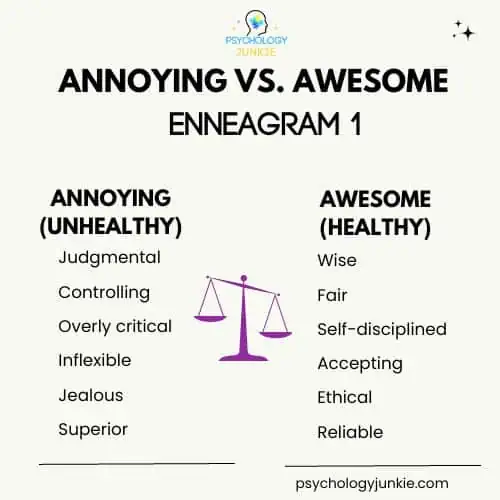
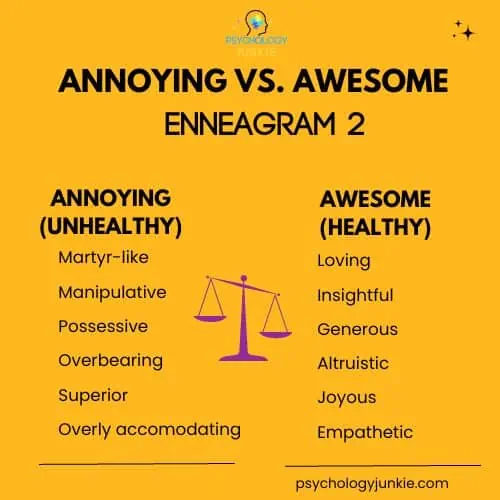
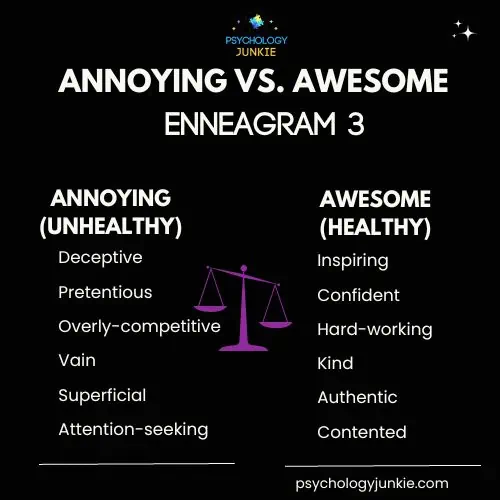
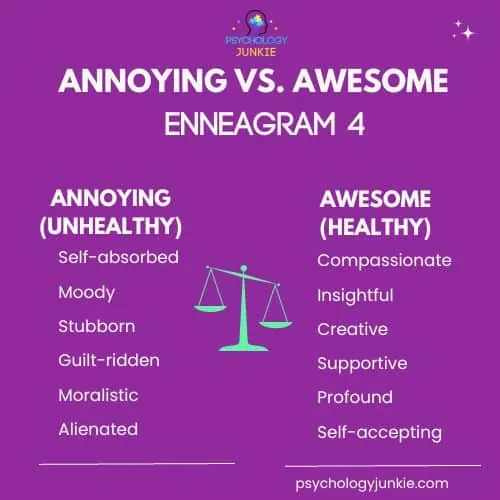
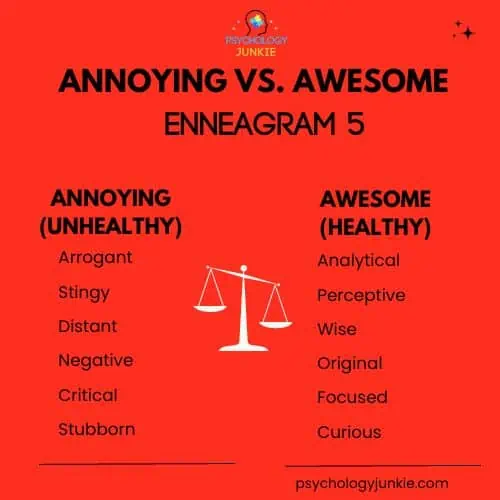
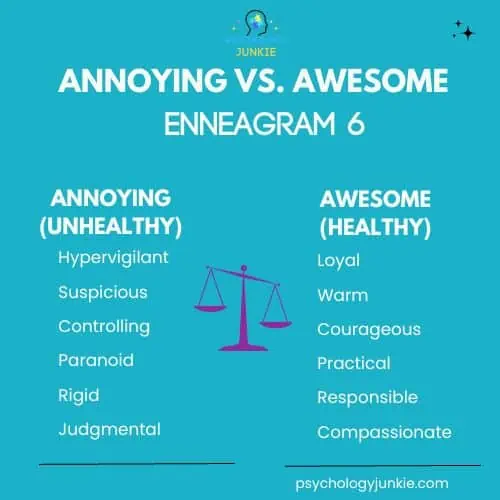
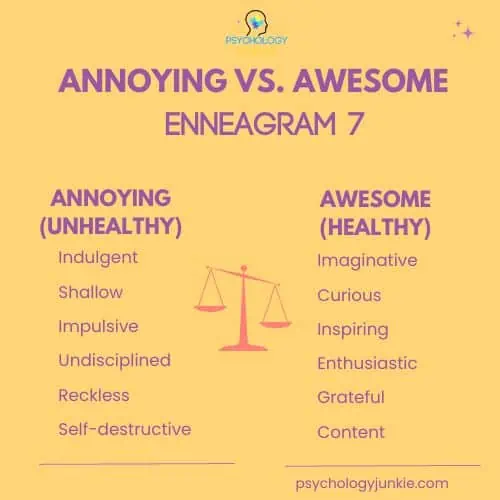
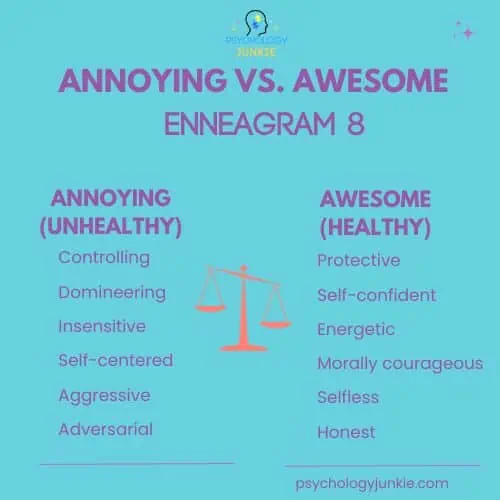
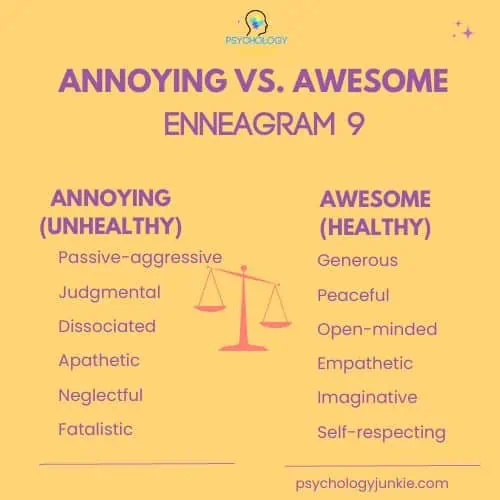




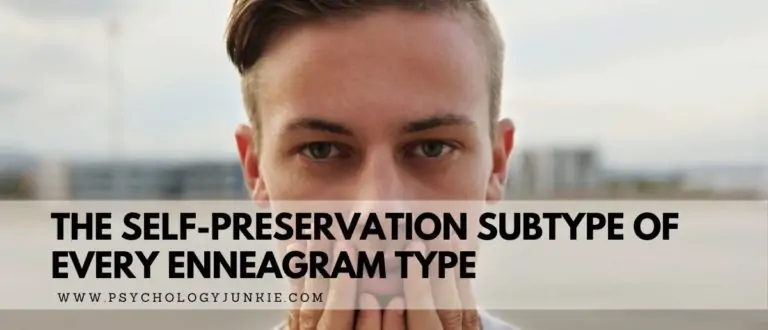
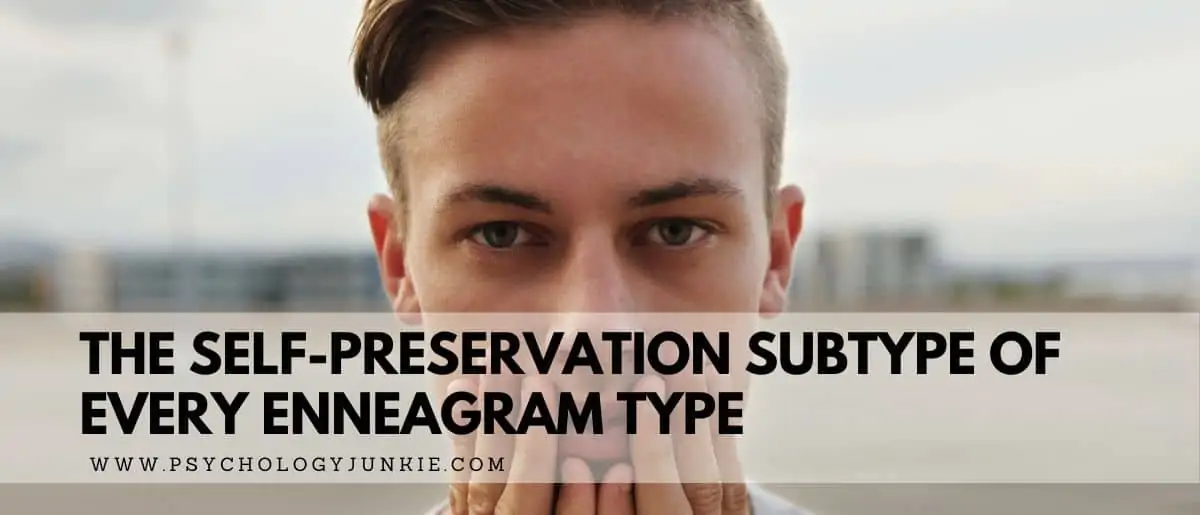
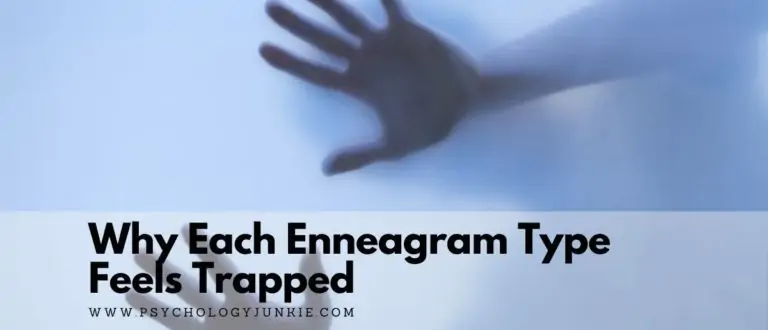
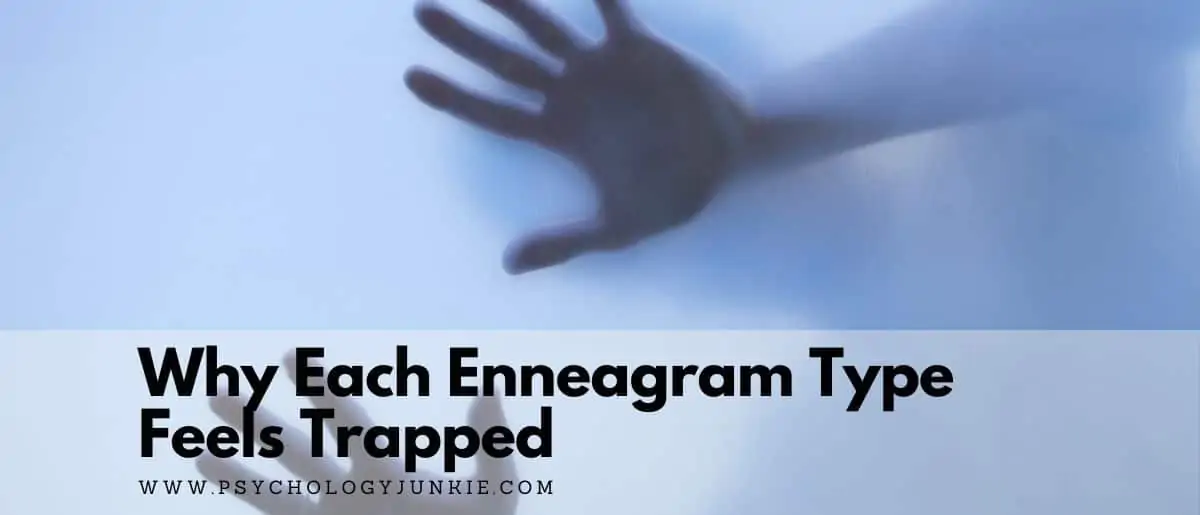




It would be helpful to know which number you are.
These articles are useless without that information.
Hi Ric! I linked to an Enneagram questionnaire in the article, but you may not have seen it. If you’d like to take the questionnaire and find your number, you can do so here: https://quiz.tryinteract.com/#/5e75808adebd860014771645
Hey Susan, have you noticed that you are more judgmental towards some types than others? I guess you can’t promise impartiality but wow!
The section about Threes in particular hurt to read (and I’m not even a Three), how useful is it going to be to simply tell them “we want to know the real you” when they are probably thinking in their minds “No, you actually don’t”? They are the way they are for a reason! I imagine they need much more reassurance than that that it’s okay to open up, heck I’m a (counter) Four and I know I do!
Same goes for Sevens, mocking them for who they are isn’t going to be conducive to them opening up.
Or maybe the whole thing isn’t supposed to be that serious, but the “lightheartedness” and “humor” isn’t evenly distributed across types.
Thanks for your feedback! I started writing the article with the intention of being bluntly funny because I’m often critiqued for holding back too much or sounding too “robotic”, plus Enneagram is just a tougher typology to write about because it can be fairly harsh when you get down to the roots of it. That said, after writing an extremely blunt first draft, I thought “that sounds too mean, I don’t want to hurt people, let me make it nicer and maybe more useful” and kept re-writing and re-writing until most of the humor I think was gone. And as a 3 myself, it’s possible I felt “fair” critiquing my type a little more directly than some of the others. Enneagram just may not be the type of system where I can try to blend humor with helpful information without it being taken a bit the wrong way or the humor being completely lost in the process of trying to make it informative and helpful:)
Spot on! Really impressive, thanks!